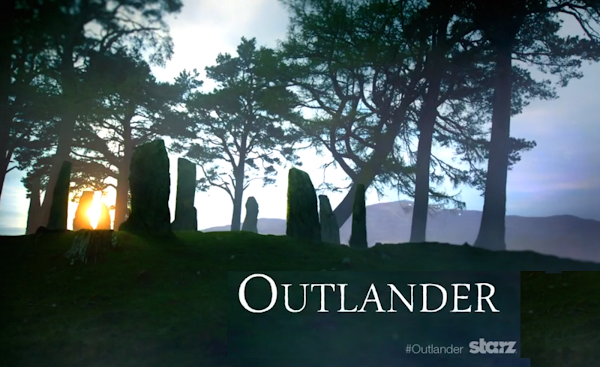Authors' reactions to comments from readers
* Well, no."Took offense" is far too mild a term. "Started acting like a thirteen-year-old" is more like it. Telling people who criticize your published writing to "f-ck off" doesn't sound like the response of a mature adult, let alone a (would-be) professional writer, does it? <rolling eyes> But don't take my word for it. Read the comments on that blog post and see for yourself.
I couldn't help but contrast Jacqueline Howett's reaction with the way that Diana Gabaldon responds to her readers, particularly on Compuserve. For the most part, she's polite, tactful, and incredibly patient when responding to questions -- especially when you consider that she's answered most of them hundreds if not thousands of times before. Diana genuinely enjoys talking to her readers and fans, and if you ask a serious question that shows you've at least read the books and given them some thought, she'll give you a serious, and sometimes very detailed, response.
Those insightful replies from Diana are one of the best things about the Compuserve forum, in my -- admittedly biased -- opinion. I just love it when she takes the time to give a comprehensive answer to some question, like this explanation of the scene in the stable between Lord John and Jamie in BROTHERHOOD OF THE BLADE.
Yes, it's true that Diana occasionally responds with a "<rolling eyes>", when she's tired or frustrated (she's only human, after all), when she sees some particularly outrageous speculation, or when someone asks for the thousandth time if Jamie will ever time-travel (the answer to that is a definite NO). But as she commented once on Compuserve, "I seldom roll my eyes with lethal intent." Diana has a tremendous amount of respect for her readers, and I think she values our opinions a great deal, even if she doesn't let those opinions influence her writing.
As for her reactions to negative reviews: Diana has said that she avoids reading the Amazon reviews. As she commented last September on Compuserve, shortly after THE EXILE came out (to decidedly mixed reviews):
Like books themselves, some reviews will be valuable to some readers and not at all to others--and whether one has such value depends as much on the reader as on the reviewer.Diana has a standard response for people who write to her saying that they didn't like one of her books, for whatever reason. She refers to this (and I'm not quite sure if she's joking or not) as "Form Letter #13":
Now, personally, Amazon reviews don't usually offer me much. I do, after all, probably know more about the book than the reviewer does <g>, and I also by this time know a lot about book-buying audiences. I have a pretty good idea how things will be received--and if by chance I didn't, I'd hear about it pretty dang quick, believe me. <g>
Ergo, I don't read the Amazon reviews. Too much time (of which I have way too little anyway) and mental distraction for no appreciable return. But that's me, and me only.
I'd never say anyone isn't entitled to an opinion or shouldn't state it wherever they like.
Not all books are for all people. I hope you enjoy whatever you read next. Yours truly.....I think that's a very professional response. Polite, respectful, and very much in keeping with Diana's public image. I think the unfortunate Jacqueline Howett could take some lessons from that approach. (Not that it matters, because after what happened this past week, I can't imagine that anyone will ever buy her books.)







I do understand critizism however. Like, I loved reading your book, or it was an interesting read, but there and there you lost me because...or I didn't understand that part. Or it's too far of what really happened (like in historical things), or something like that. Because it shows that the reader has actually 'worked' with the book. I also think, and please remember that this is my opinion, so please don't flock me, that this could really be good for an author. As Ms. Gabaldon already said, she knows more about the story than anyone else and she also knows about all the little parts and tibits that don't actually make it into the book, but they are all still in her head...and so it might happen that she totally understands a following scene she has written, even though the audience might not, because an important information has simply not made it into the book. I for one thought that the time Jamie and Claire spent in that military camp in the last book was far too long and while I was reading I kept thinking to myselg..please get on with it already and have them leave for Scotland. Then Scotland was far too short in my opinion. But it was still a great book and can't wait for the next installment!
Btw. we also have a wonderful author, much like Ms. Gabaldon here in Germany. Her name is Rebecca Gablé and funnily she mostly writes about English history! I hope that she gets translated into English one day, because I think you would love her books! But back to the point, she also responds to her readers, whether they send her an email over her website or on her Facebook page. She even challenges her Facebook followers regularly with historic information or discussions about different themes.
If my spelling and grammar were so atrocious, I don't think I'd have the guts to leave comments all over the internet.
It really is a huge contrast to an author like Diana, who may not always agree with your criticism (they are, after all, her books) but responds thoughtfully and provides readers and critics an incredibly rare opportunity by communicating so openly with them.
Sirena - If my spelling and grammar were so atrocious, I certainly wouldn't be publishing books that make that fact obvious, would you?
Julia - yeah, I know what you mean. I was speechless when I heard about this yesterday. Her comments on that blog are so self-destructive, it's almost as though she deliberately decided to sabotage her own writing career before it really got started.
Very strange. But highly entertaining, in the way that rubbernecking at the scene of a car accident on the highway is entertaining. What do they call that, Schadenfreude? <g>
Karen
Karen